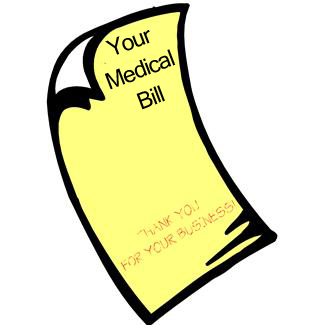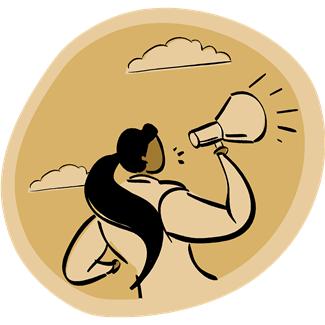Habits In Medical Care, Part Two: Pay That Bill!
HABITS IN MEDICAL CARE, PART TWO: PAY THAT BILL! (ISSUE 83)
By Diane Gold
 When we go to a medical professional for wellness or sickness services, we start to build habits. We learn that it is important to trust the doctor with both the body and the mind, or that’s how it was in the 1960s when I was young. We were taught we had to trust this person of medicine to care about us and that we could talk to them about anything that bothered us, even emotional issues.
When we go to a medical professional for wellness or sickness services, we start to build habits. We learn that it is important to trust the doctor with both the body and the mind, or that’s how it was in the 1960s when I was young. We were taught we had to trust this person of medicine to care about us and that we could talk to them about anything that bothered us, even emotional issues.
So, in adulthood, we find a doctor or several that we believe can provide competent service, adequate face time with us, where s/he doesn’t seem bored out of her mind and where our appointment time is respected, meaning we only wait 50 minutes for our doctor instead of 90 minutes, which we have waited at the other offices and, finally, if we have medical insurance, a professional who is in our network to keep the bill down. And we call this a good choice of doctors and a great visit, more or less.
 Note that I am using the term doctor to mean the individual each of us has chosen to be our primary health care provider. Personally, I’m still looking.
Note that I am using the term doctor to mean the individual each of us has chosen to be our primary health care provider. Personally, I’m still looking.
We will speak about the billing habit that we are taught from an early age: the bill comes and we have to pay it. So we’ve had lots of practice at believing in the medical bill.
THE BILL FOR MEDICAL SERVICES
When the bill comes, we have watched our parents pay it, and we have even paid it ourselves on more than one occasion. So, what do we do? We pay it.
I have a story that reminds me of how our habit of paying whatever bill comes in because doctor’s offices are trustworthy and would never cheat a patient can end up costing people extra money.
MY LATEST STORY
In the world of technology, it is important to change the habit of just going along. So, here’s my story.
I went to an emergency room to see if I broke a bone after slipping on cat regurgitation that blended in well with the floor. Although I pay an exorbitant amount for health insurance, I was pretty sure I wasn’t covered for the emergency room. But I needed to go because it was an emergency. So, I went.
I had X-rays taken, waited hours for a radiologist to read them and had an ER doctor report I was only bruised. Funny how that turned out to be 2 doctor bills.

I figured $2,000, easy. The next day, after resting, I decided to call Blue Cross, the insurance company to see how much I actually had to pay. I was told I had no co-pay and no charge for the emergency room to which I jumped with glee.
So, I had one recorded phone call where the rep stated I would not have to pay anything but the doctors’ bill.
 Next I received an invoice for $466. This was quite different from the $00.00 I had been told I would have to pay.
Next I received an invoice for $466. This was quite different from the $00.00 I had been told I would have to pay.
So I called another agent and explained that I had already been told there would be no medical bill, only a doctor’s fee. So, what was the bill for?
The agent put me on hold and researched my insurance policy. He was happy to say that I would not have to pay a co-pay, and that my emergency visit facility charge would be paid for. He said he was going to have the correct department adjust the invoice to $00.00.
The following day, I decided to call and speak with a supervisor since I was not satisfied with having to wait 30 days. Again, I had a regular rep and a supervisor tell me, each, on her/his own, that there would be no payment necessary for the facility I had gone to. And that they would expedite the process of removing the charge.
Later that day, I got a call from the agent I called after receiving the invoice. He said he had found that all agents had misinformed me and that I would have to pay the bill.
At this time, I began thinking about people who pay blindly because they trust the medical team, or because they believe they have no voice to speak up. I wondered how many people pay an incorrect bill just because it was sent? And how much extra money do doctors and hospitals receive just because people don’t have the confidence to inquire?
People don’t want their credit scores ruined. So they pay no matter what. It’s sad. And one disgraceful thing on the part of the health insurance provider is that, “The written terms of your contract always prevail.” This, in essence, means whatever a rep says is not backed by the company. The only thing that is valid is the words in the insurance contract.
CONCLUSION
The habit we learn is if an invoice has been mailed out, it must be right. So pay it! This is false thinking and we need to check with our provider before paying any unknown amount.
ACTION STEP
 There is only one step:
There is only one step:
SPEAK OUT by asking five questions:
1) What is my co-pay?
2) What is my out-of-pocket amount?
3) What do I end up paying for this service?
4) How many doctor bills will I get separately?
5) If the information you provide is incorrect, will your company back you on the information you give?
The set of questions is crucial. As you see, I asked them and got four incorrect responses. I will appeal the bill because of all the wrong information. However, from my experience and looking at the insurance provider’s failsafe quote about “only the written terms prevail,” the provider will deny the appeal, and the patient (I, in this case) will pay in the end.
Unless we object to a policy where a company does not stand by its employees words, it will not change. So, speak out! And good luck recognizing this and other habits in medical care.
____________________________________________________________________
FEEDBACK
Please leave a comment and LIKE.
DIANE GOLD, AUTHOR
Diane Gold, Founder of Warriors of Weight, Turning Habits Into Health, is a mentor in tai chi, kung fu and meditation, a music, fitness and stress expert, dedicated mom, studying plant-based nutrition.
She considers how corporate customer service affects the average person. She says,
“Since most often, our habits are working; it is to our advantage to notice them. There are so many ways we have been trained to be, so many things we blindly accept.
“We should keep a notebook of the habits we see. If they support the way we want to live, they are good habits. If they hinder us, it’s time to make an adjustment. We decide, once we are aware. So, take note, and choose what works.”







